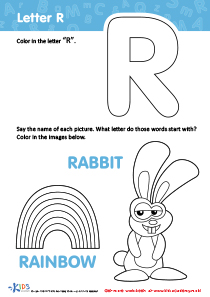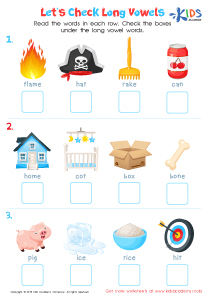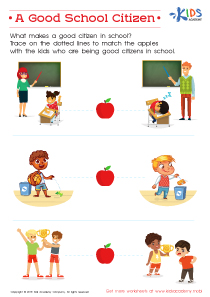Normal Engineering Quizzes for 6-Year-Olds
1 results
1 filtered results
Clear all filters1 filtered results
-
From - To
Dive into the fascinating world of building and creativity with our "Normal Engineering for 6-Year-Olds" interactive assessment quizzes! Tailored specifically for inquisitive young minds, these quizzes are designed to ignite a passion for engineering through fun and engaging questions. As your child explores fundamental concepts, they'll receive instant feedback, encouraging a deeper understanding and reinforcing their learning. Perfect for 6-year-olds, our quizzes make engineering concepts accessible, laying a solid foundation for future scientific exploration. Join us on this exciting journey and watch your child's knowledge and confidence in engineering grow!
In the dynamic world of education, where traditional learning methods are continuously blended with innovative approaches, Normal Engineering for 6-Year-Olds stands out as a remarkable initiative. This program, designed specifically for young minds, brings the fascinating world of engineering to life through interactive quizzes that are both engaging and educational.
Understanding the basic concepts of engineering at an early age can significantly impact a child's cognitive development and problem-solving skills. Normal Engineering for 6-Year-Olds is a carefully crafted educational tool that introduces these concepts in a manner that is accessible and enjoyable for children. The interactive quizzes are not mere assessments; they are adventures into the realms of imagination, creativity, and logic.
The beauty of these quizzes lies in their ability to adapt to the unique learning pace and style of each child. Unlike traditional classroom settings, which can sometimes inadvertently leave some students behind, interactive quizzes ensure that every child feels included and is given the opportunity to learn at their own pace. This fosters a positive learning environment, where children are encouraged to explore, ask questions, and make discoveries on their own.
One of the key benefits of Normal Engineering for 6-Year-Olds is its focus on applying theoretical knowledge to practical situations. Through the quizzes, children encounter real-world problems that engineers solve. This not only helps them understand the importance of engineering in daily life but also stimulates their curiosity about how things work. Such an approach is instrumental in developing critical thinking and analytical skills from a young age.
Moreover, these interactive quizzes are designed to be fun and engaging, incorporating elements of gamification such as points, levels, and rewards. This makes learning about engineering an exciting adventure, rather than a daunting task. Children are naturally drawn to play and exploration, and Normal Engineering for 6-Year-Olds taps into these instincts to facilitate learning. As a result, children not only acquire new knowledge but also develop a genuine interest in engineering and science.
The program also promotes teamwork and collaboration among children. Many quizzes encourage group participation, teaching children the value of working together to solve problems. This is a critical skill in the field of engineering, where complex projects often require the combined efforts of multiple individuals. By instilling the importance of teamwork from an early age, Normal Engineering for 6-Year-Olds prepares children for future success in any career path they choose.
In conclusion, Normal Engineering for 6-Year-Olds is an innovative educational tool that transforms the way children learn about engineering. By combining interactive quizzes with a curriculum designed for young learners, the program makes engineering accessible, enjoyable, and relevant. Whether it's fostering problem-solving skills, encouraging curiosity, or promoting teamwork, Normal Engineering for 6-Year-Olds provides a strong foundation for children's educational journeys. As we look to the future, initiatives like this will be crucial in preparing the next generation of engineers, innovators, and thinkers.











